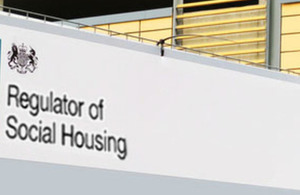The first non-executive members of the new Office for Environmental Protection were announced today (Monday 7 June).
The new members are Dr Paul Leinster CBE, Professor Richard Macrory, Professor Dan Laffoley and Julie Hill MBE. They will join chair Dame Glenys Stacey in advising Government and holding public authorities to account for their implementation of environmental law.
Welcoming the appointments, Dame Glenys Stacey said:
I am delighted with the calibre of our new board members. Together they bring a wealth of knowledge and experience of the environment and environmental law, and a real commitment to the OEP.
We will begin work together imminently, setting our ambitions and goals at the highest level so as to make the most difference, on behalf of current and future generations.
Environment Minister Rebecca Pow said:
These appointments will help to establish a world-class Office for Environmental Protection that champions and upholds environmental protections.
Through our landmark Environment Bill, we will ensure the OEP is a strong and independent body that holds the government to account and plays a key role in our commitment to enhance our environment as we build back greener.
The Office for Environmental Protection
- The Environment Bill will create a new, independent statutory body with the principal objective of contributing to environmental protection and the improvement of the natural environment. It will provide the necessary legal authority to implement long-term environmental governance
- The OEP will provide scrutiny and advice on the implementation of environmental law. It will also monitor and report on progress against Environmental Improvement Plans and targets
- The OEP will be able to receive and investigate complaints on alleged serious breaches of environmental law by public authorities. It will also be able to take legal action in serious cases if necessary as a last resort
The role of the OEP Board
- establish and take forward the strategic aims and objectives of the OEP
- set the long-term direction for the executive team and the tone and pace needed to deliver the agreed strategy and plans
- ensure that in exercising its functions the OEP acts objectively and impartially, and has regard to the need to act proportionately and transparently, and furthers its principal objective
- determine and review when appropriate its own procedures, meeting any statutory requirements
- consider recommended courses of action and provide oversight and direction for staff implementing the OEP’s functions, with the Board making decisions where required for those functions that it may not delegate to Individual Board members or staff, including enforcement action against public authorities and approval of the OEP’s annual report on progress in achieving environmental improvement plans and targets
- receive, review, and submit regular performance information concerning the ongoing delivery of the OEP against its strategy
- ensure that Parliament is kept informed of any revision of the OEP’s strategy
- ensure that effective and high standards of corporate governance are always in place
- comply with the Code of Conduct for Board Members of Public Bodies
Biographies
Dr Paul Leinster CBE
Dr Paul Leinster CBE has over 40 years of practical experience in environmental management, science, policy and regulatory development and implementation in the private and public sectors. He is Chair of Water Resources East, the Bedfordshire Local Nature Partnership, the Institute of Environmental Management and Assessment, and BPHA (a housing association), and is a Board Member of both Flood Re and Delphic HSE. He also provides strategic environmental consultancy advice to public and private sector organisations. From October 2015 to December 2020 he was Professor of Environmental Assessment at Cranfield University and a Member of the Government’s Natural Capital Committee. Immediately prior to this, he was Chief Executive of the Environment Agency for more than seven years. Prior to joining the EA in 1998 he worked for more than 20 years in the private sector.
Professor Richard Macrory
Professor Richard Macrory is currently an emeritus professor of environmental law at University College, London, where he set up and was first director of the Centre for Law and the Environment. He has also practised as a barrister at Brick Court Chambers London. Professor Macrory served as a board member of the Environment Agency England and Wales between 1999 and 2004, and was a long-standing member of the Royal Commission on Environmental Pollution. He was the founding editor of the Journal of Environmental Law and was chairman of Merchant Ivory Film Productions between 1988 and 2004. In 2006, Professor Macrory led the Cabinet Office Review on Regulatory Sanctions and his recommendations were reflected in Part 3 Regulatory Enforcement and Sanctions Act 2008. This established the framework for a new range civil sanctions in the regulatory field to be used alongside existing criminal law. Much of Richard’s research work over the years has been concerned with various aspects of EU environmental law, and for a short period in the early 1990s he worked in the infringement unit at DG Environment as a visiting academic. Professor Macrory was the first chair of UK Environmental Law Association, and in 2016-2018 was co-chair of UKELA’s Brexit Task Force.
Professor Dan Laffoley
Professor Dan Laffoley is a well-respected leader on Marine Protected Areas (MPAs) and conservation. A scientist, communicator, explorer and marine biologist, he has over three decades of experience in the UK, Europe and around the world. He is currently Marine Vice Chair of the International Union for Conservation of Nature’s World Commission on Protected Areas responsible for global targets and guidance on ocean protection. Prior to that he led the development and scale-up of the marine conservation work of Natural England and English Nature. He has been responsible for the creation of many global, European and UK public and private sector partnerships, alliances and frameworks that underpin modern-day marine conservation. This work includes creating the concept behind Blue Carbon, scaling up knowledge and action on ocean warming, acidification and deoxygenation, scaling-up work on marine World Heritage and conservation of the High Seas, and various global guidance on implementing MPAs and marine spatial planning.
Julie Hill MBE
Julie Hill has led a career in environmental policy and politics. She is presently the Chair of the Waste and Resources Action Programme (WRAP), Chair of the Institution of Environmental Sciences (IES) and Deputy Chair of the Advisory Committee for Social Science for the Food Standards Agency. Former roles include Director of the environmental think-tank Green Alliance, and board member of the Eden Project, the Environment Agency (England and Wales) and the Consumer Council for Water.

